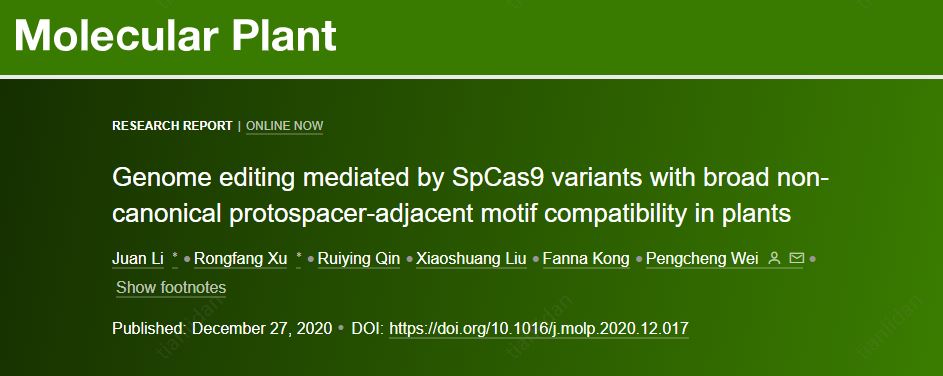Our team published a paper "Genome editing mediated by SpCas9 variants with broad non-canonical protospacer-adjacent motif compatibility in plants" in Molecular Plant on December 27, 2020.
Streptococcus pyogenes Cas9 (SpCas9) is the most widely used genome editing system in plants. The editing induced by SpCas9 strictly require a canonical NGG protospacer-adjacent motif (PAM), thus limiting the scope of application. Recently, five SpCas9 variants, including SpCas9-NRRH, SpCas9-NRCH, SpCas9-NRTH, SpG and SpRY, were developed to recognize non-canonical PAMs in human cells. Here, these variants were engineered for plant genome editing, and the targeted mutagenesis capabilities were comprehensively examined at various canonical and non-canonical PAM sites in rice ( Oryza sativa) by stable transformation. In addition, cytosine base editors using a rat APOBEC1 or a human APOBEC3a and adenine base editors using a directly evolved high-compatible TadA*-8e deaminase were developed from the SpCas9 variants and readily generated conversions between C∙G and T∙A in targets with non-canonical PAMs in transgenic rice lines. Together, the toolbox constructed in this study substantially expands the scope of SpCas9-mediated genome editing and will greatly facilitate gene disruption and precise editing in plants.
- Like (6)
- Reply
-
Share
About Us · User Accounts and Benefits · Privacy Policy · Management Center · FAQs
© 2025 MolecularCloud




